Bringing a new kitten into your home is like starting a delightful yet complex journey. It's easy to get caught up in the excitement and overlook some key aspects of kitten care.
This article guides you through the 10 common mistakes that many new kitten owners make, often without realizing it. We'll cover everything from socialization and training to health monitoring and cost management.
Our goal is to equip you with the knowledge to provide a nurturing environment for your kitten, ensuring they grow up healthy and happy. So, let's begin this journey to responsible and fulfilling kitten ownership.
1. Not Providing Proper Socialization
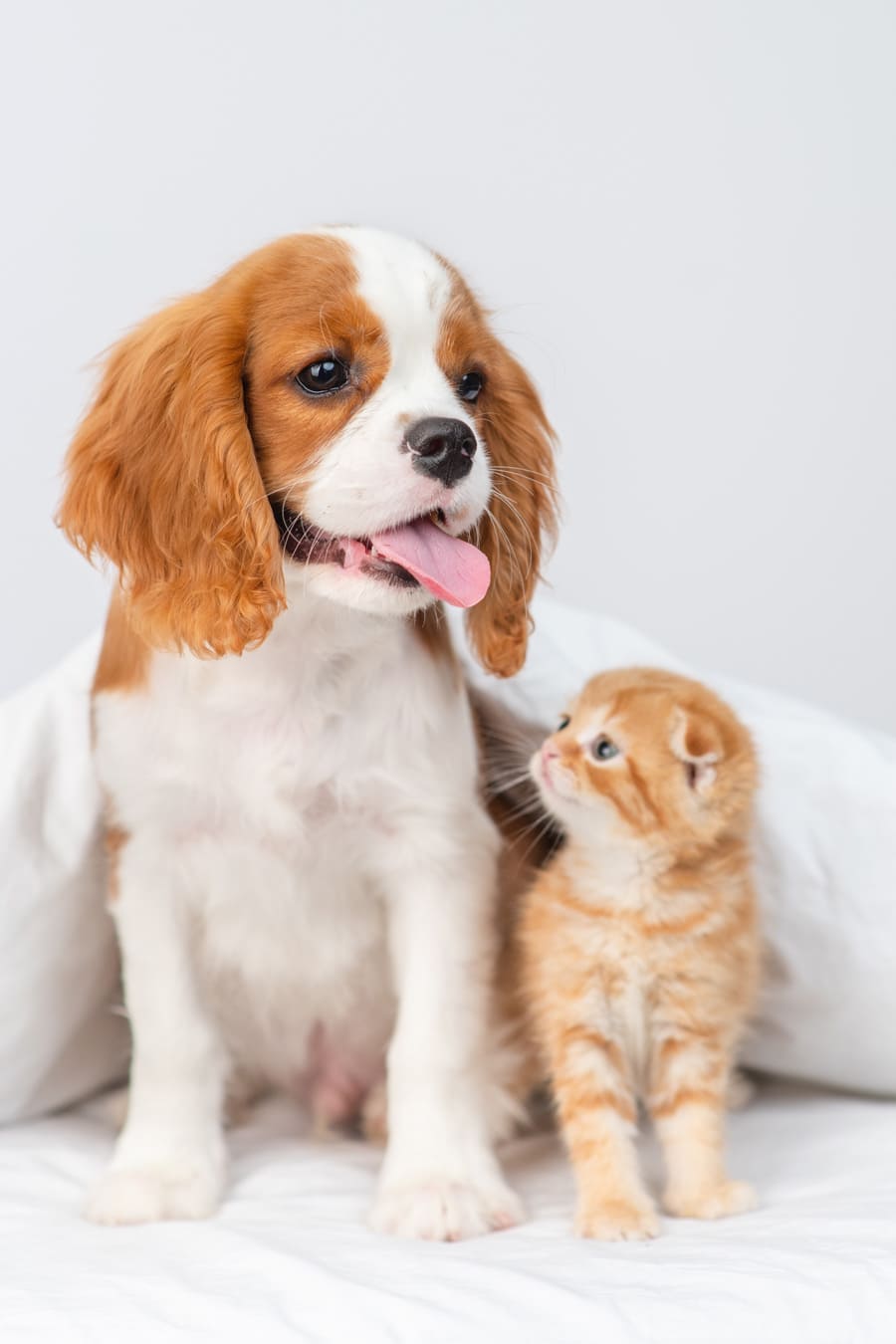
As a new kitten owner, it's crucial to introduce your furry friend to various experiences. Think of it as helping them build their confidence.
Imagine exposing your kitten to different people, pets, and even various household sounds; this sets the stage for them to grow into well-adjusted adults. Without this exposure, kittens can develop fears or aggressive behaviors, leading to challenges in adulthood.
A study shows that kittens socialized between 2 to 14 weeks of age are more likely to be friendly and comfortable in diverse environments.
2. Ignoring Early Training
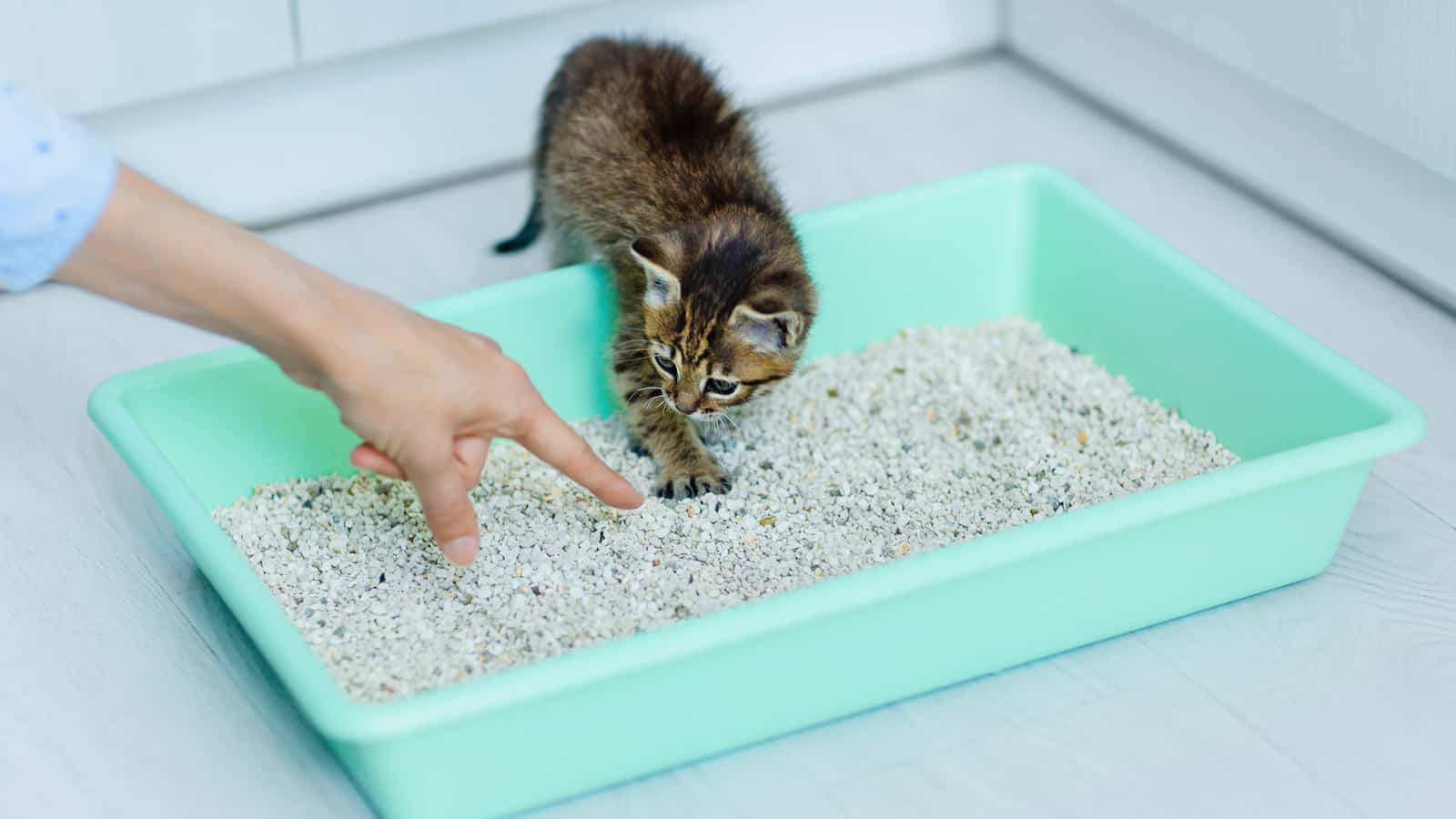
Training isn't just for dogs; your kitten can benefit hugely from it too. Start with the basics: using a litter box and not using your couch as a scratching post. Consistency is key.
The American Association of Feline Practitioners (AAFP) emphasizes that kittens learn best through positive reinforcement, so reward good behavior rather than punish bad behavior.
Training your kitten early not only strengthens your bond but also makes future training easier. Think of it as a foundation for a lifetime of good habits and mutual understanding.
3. Overlooking Preventative Health Care
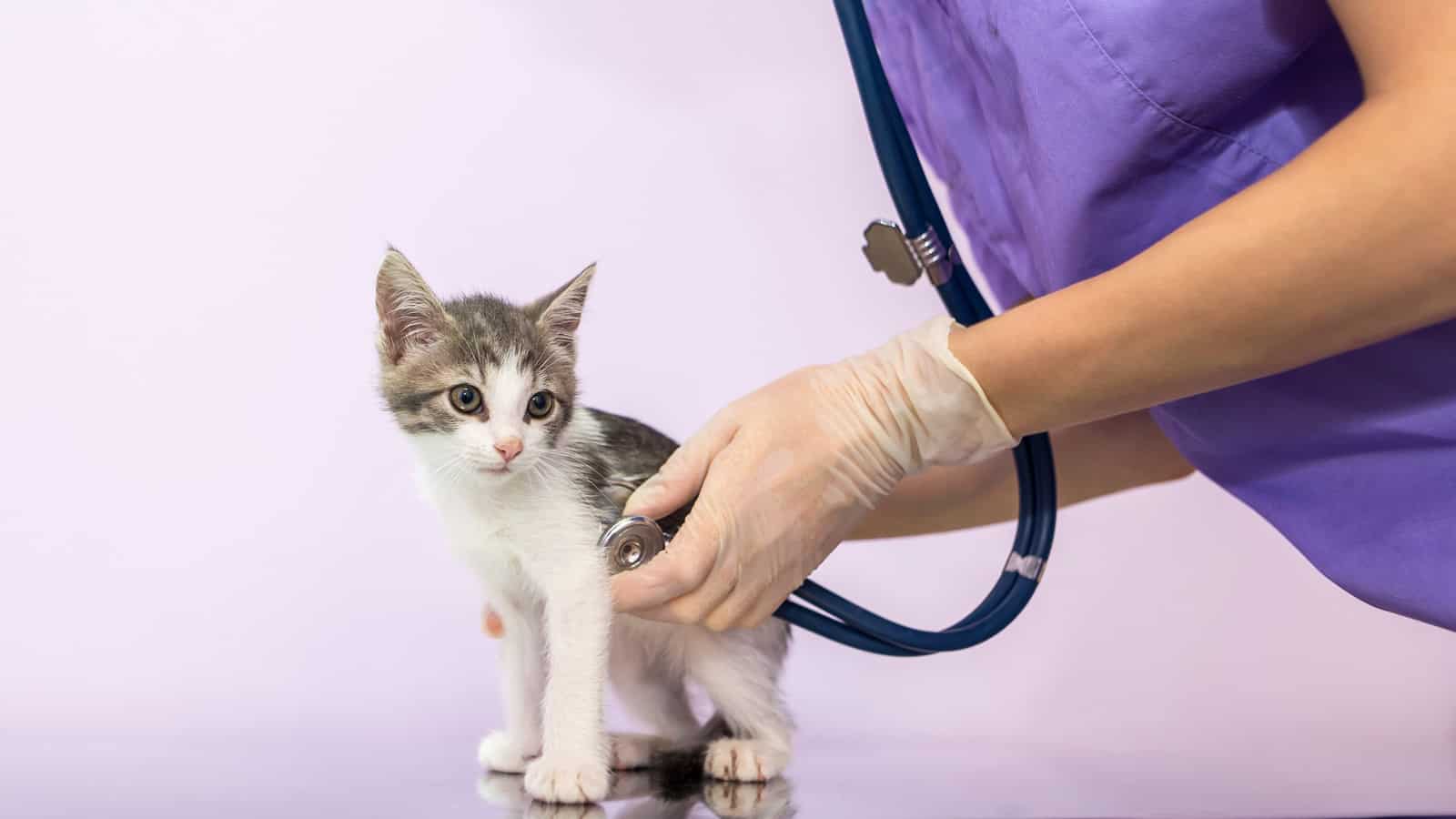
New kitten owners must prioritize their pet's early health care needs. Your kitten requires a series of vaccinations starting as early as six to eight weeks old, protecting them against common and potentially deadly diseases like feline leukemia, rabies, and distemper.
Also, parasite control is necessary; kittens are often born with worms and can easily pick up others. Another key aspect of early health care is considering the benefits of spaying or neutering your kitten.
This is about more than just preventing unwanted litters; it significantly reduces certain health risks and behavioral issues.
For instance, neutered males are less likely to roam or engage in fights, substantially lowering their risk of injuries and diseases like FIV and FeLV. Veterinarians indicate that these procedures contribute to your kitten's safer, healthier life.
4. Feeding Inappropriate Food
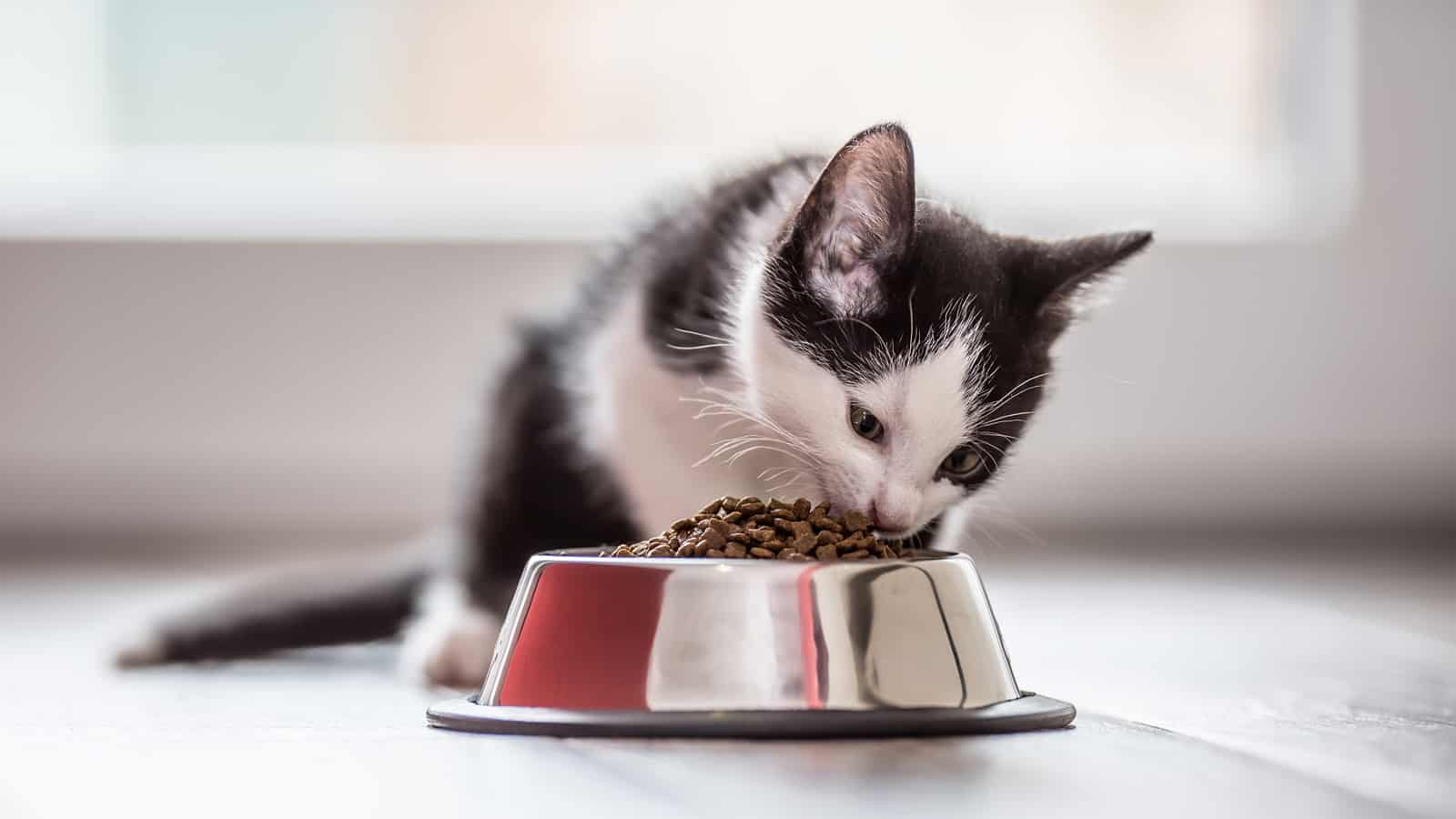
During their first six months, kittens experience rapid growth and require a diet that meets their unique nutritional needs. This includes increased levels of protein, energy, and minerals like calcium and phosphorous.
Kittens should be fed a complete and balanced kitten formula until they are at least one year old. Adult cat food typically contains around 30 to 35% protein and 20 to 24% fat, which is insufficient for kittens, who need up to three times more calories than adult cats to support their rapid growth and development.
Also, introduce new kitten food gradually to avoid digestive issues. Sudden dietary changes can upset a kitten's sensitive digestive system, leading to discomfort or diarrhea.
Remember, a balanced diet and careful introduction of new foods are key to ensuring your kitten's health and well-being.
5. Not Providing Enough Stimulation
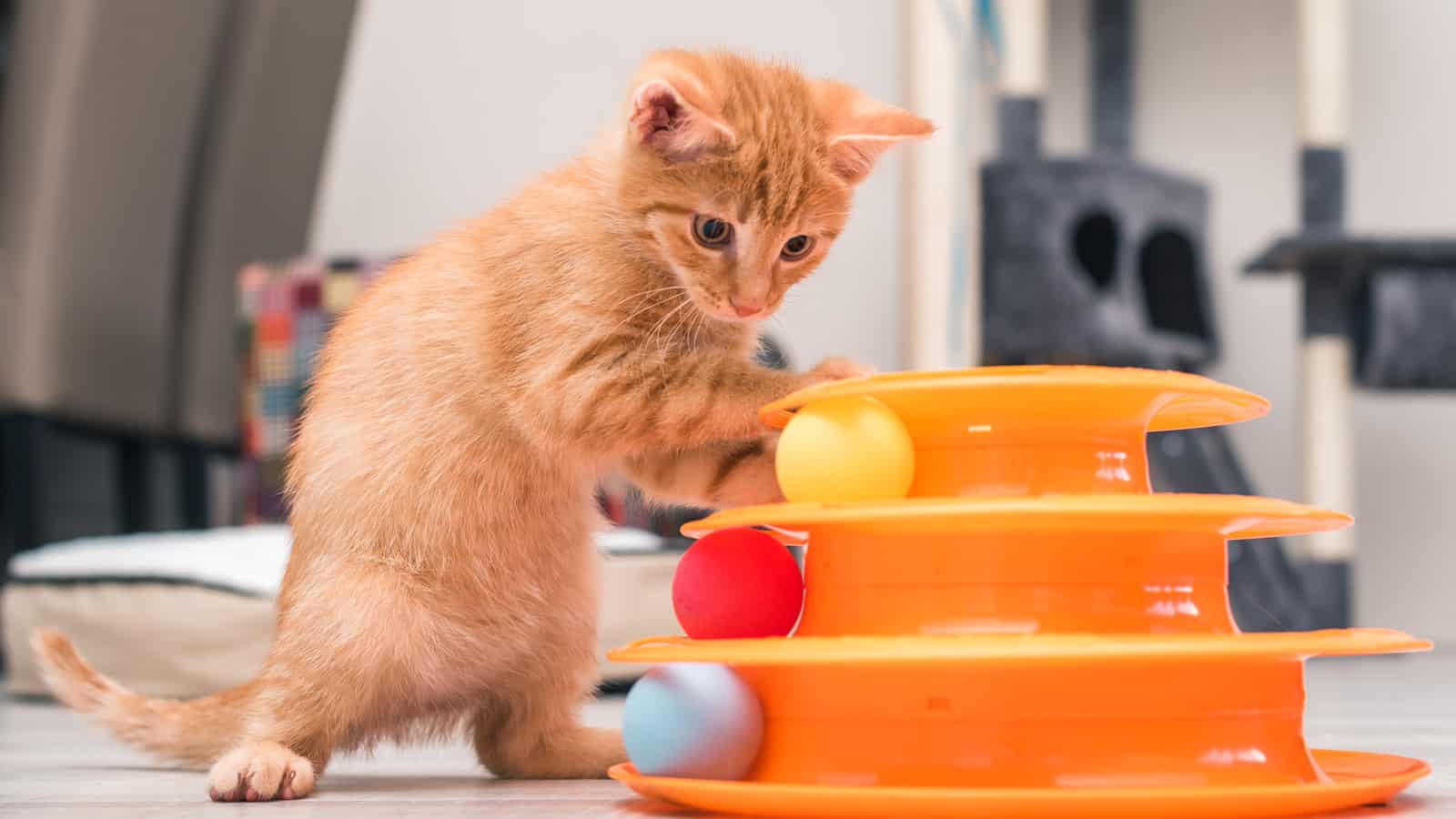
You might not realize but your kitten's playful pouncing and chasing are more than just cute antics; they're vital for their mental and physical development.
They need a variety of toys and interactive play to stimulate their natural hunting instincts and keep their agile minds sharp. To help you, check out this article on "The Best Cat Toys for Every Budget," which offers great ideas for every kind of playful feline.
Without this variety in play, they can easily turn to your furniture or curtains as outlets for their boundless energy, leading to a path of playful destruction in your home. Playing with your kitten is essential for their happy and healthy growth.
6. Neglecting Grooming and Dental Care
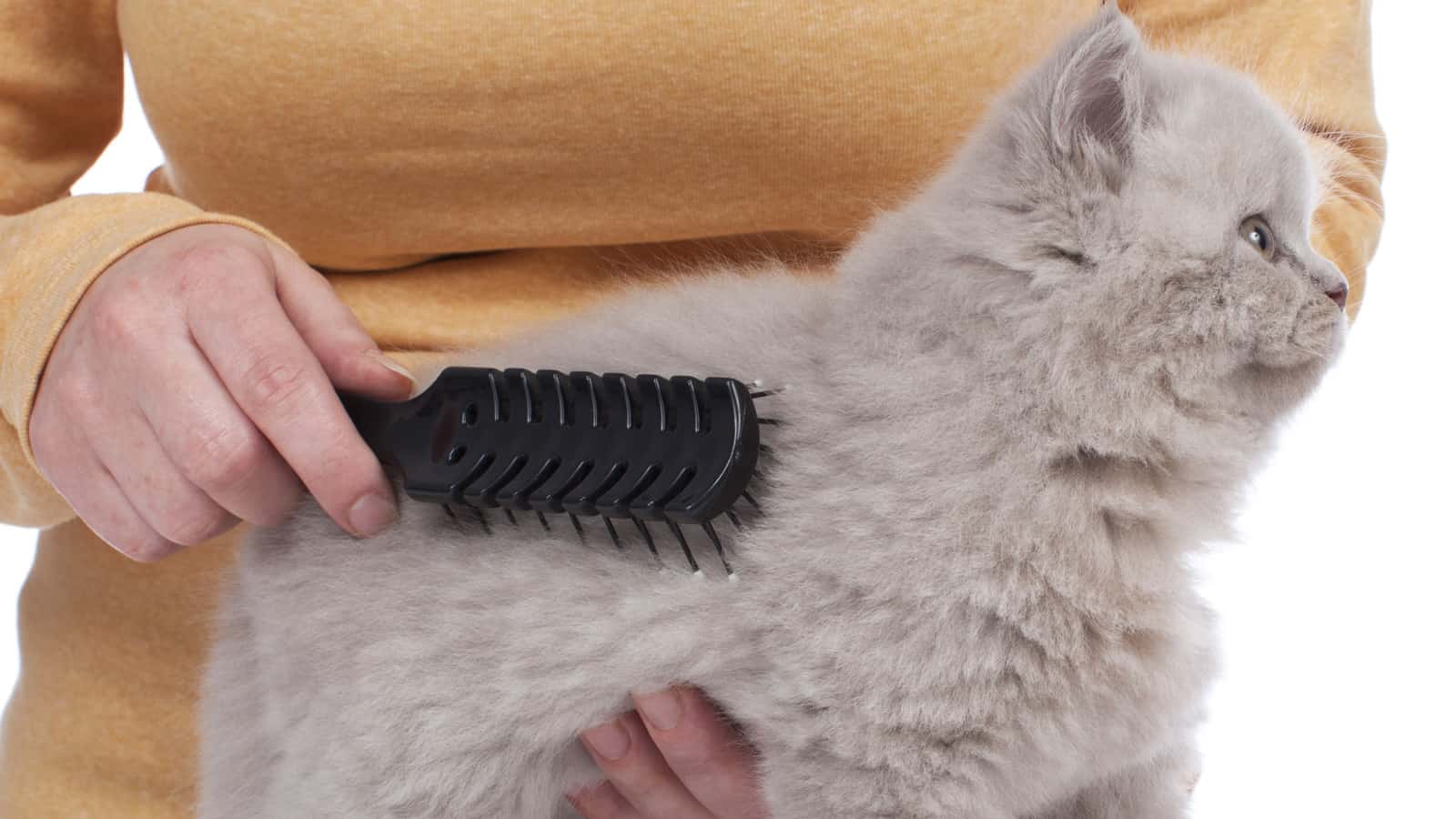
Did you know that your kitten's grooming needs go beyond keeping their fur fluffy and cute? Regular brushing is important for preventing painful matting and skin issues and also has deeper benefits, as explained in this guide about the importance of grooming your cat regularly.
And let's not forget about dental care; learning how to brush your cat's teeth can set the foundation for good oral health, preventing many problems later in life.
So, grab that brush and toothbrush; your kitten will appreciate the effort, and it will pay off in their health and happiness.
7. Failing to Establish a Safe Environment
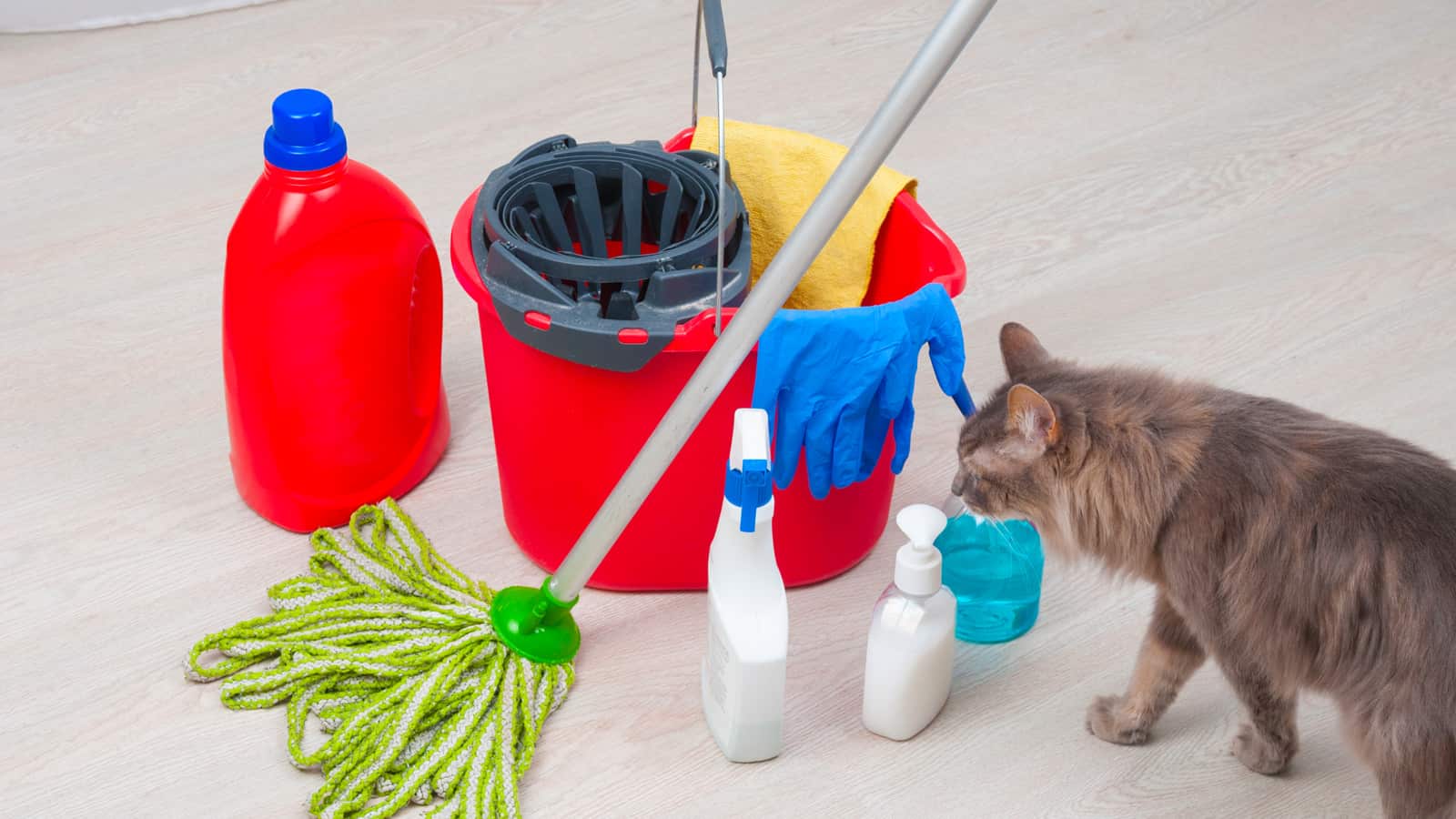
Your home can be a minefield of hazards for a kitten whose curiosity knows no bounds. Common dangers include toxic substances like cleaning products, certain plants, medications, and foods, as well as risks of electrocution and injuries from other animals.
Household accidents are among the leading causes of cat trauma in real-life cases, not just theoretical risks.
By kitten-proofing your home - securing dangerous items, keeping toxic substances out of reach, and ensuring other pets are friendly - you can drastically reduce these risks and create a safe haven for your furry companion.
8. Ignoring the Need for Bonding and Affection
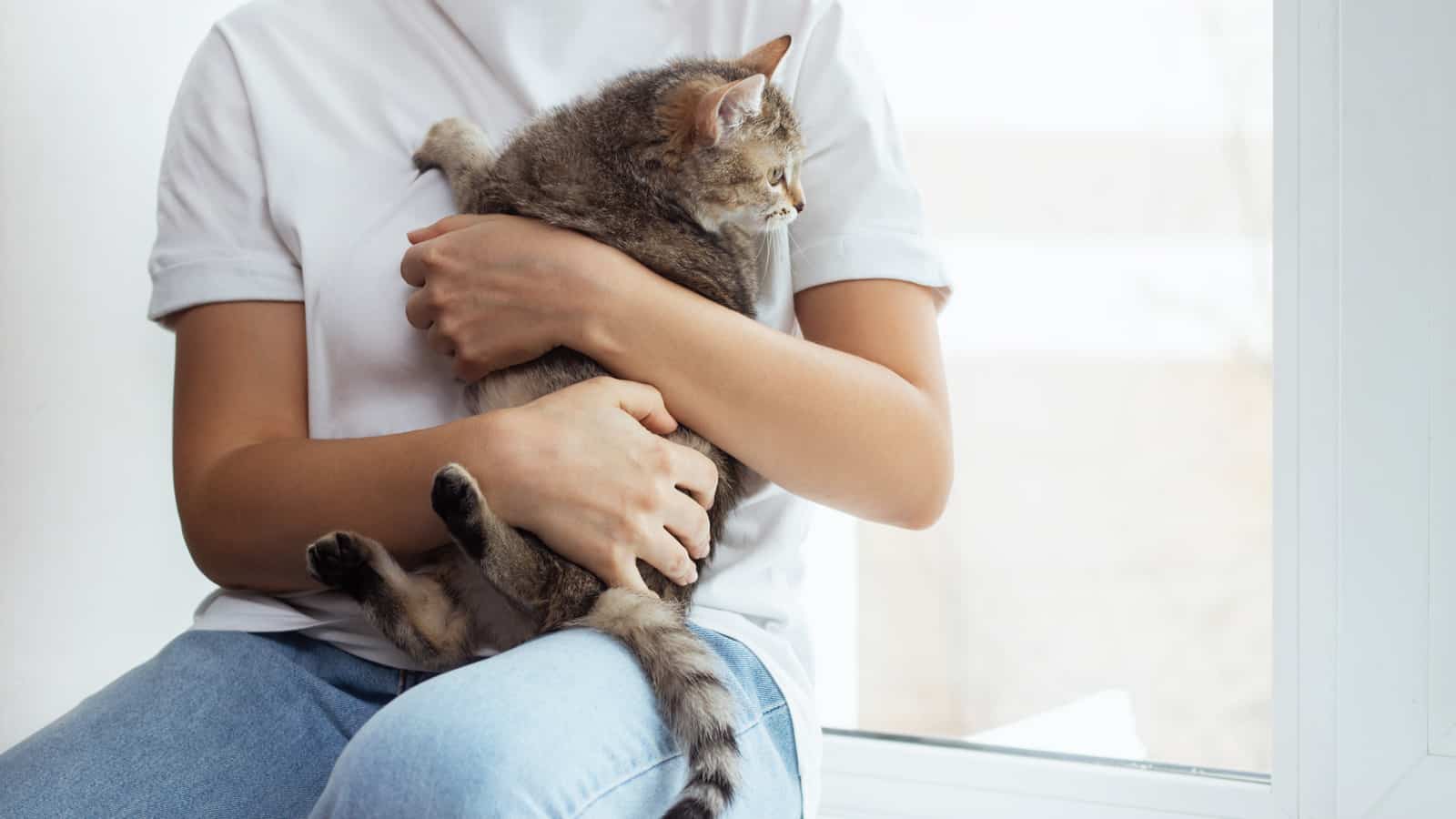
Developing a strong bond with your kitten is important for their emotional well-being and growth, and it involves more than just cuddling.e than just cuddling.
The American Veterinary Medical Association emphasizes that the socialization period for kittens, typically between 3 and 9 weeks of age, is crucial for their ability to interact with people and other animals later in life comfortably.
Studies have shown that kittens handled regularly during this sensitive period are more likely to be friendly and well-adjusted adults. This involves not only handling them but also exposing them positively to various experiences, people, and environments.
By actively engaging in your kitten's socialization process, you're laying the foundation for a well-behaved, sociable, and affectionate cat.
9. Not Monitoring Their Health
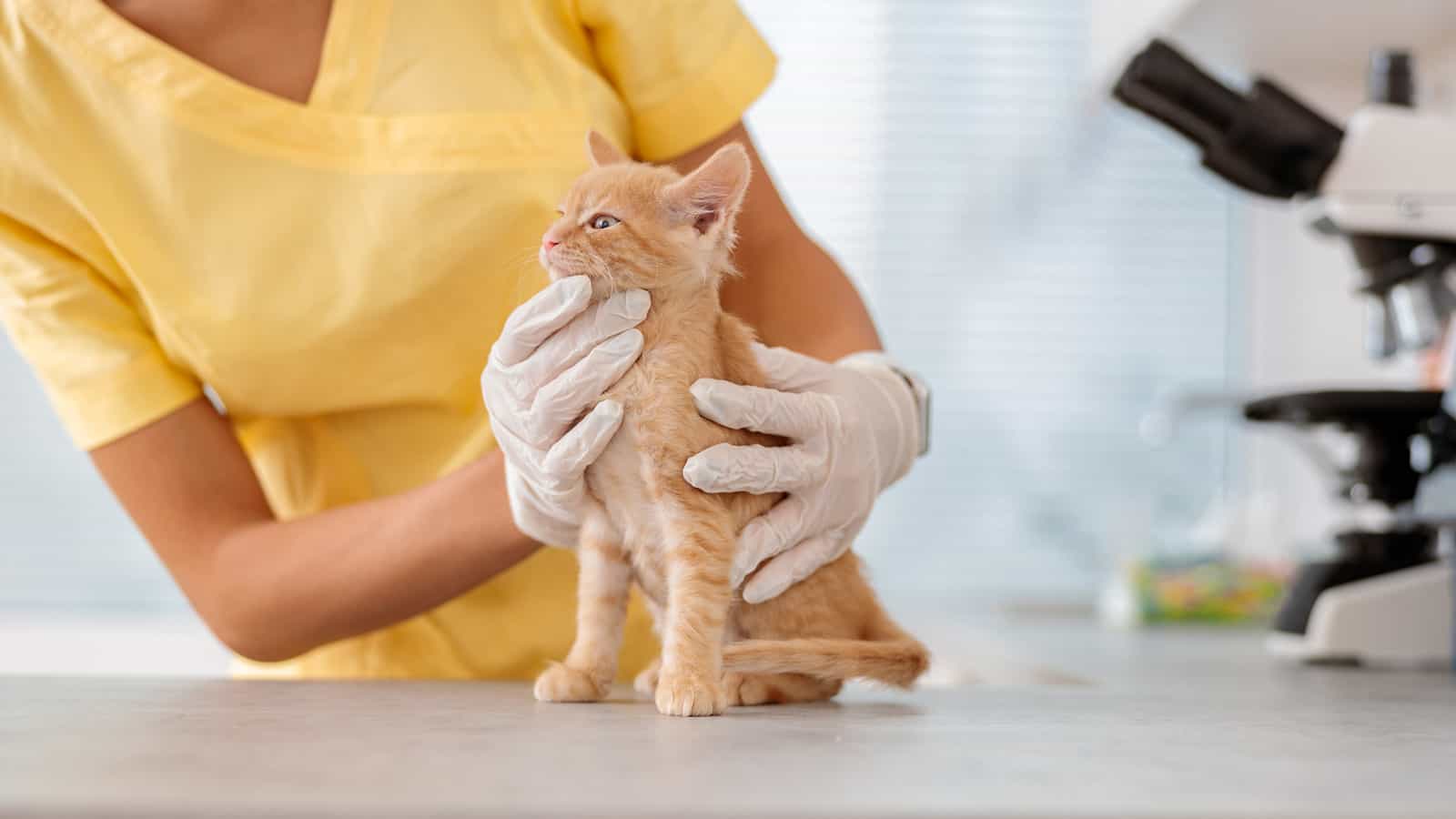
Bringing a kitten into your life is akin to welcoming a new, tiny, furry family member. But remember, just like a baby, your kitten can't articulate when something's wrong, so it's on you to be vigilant.
Keep an eye out for changes in behavior or appetite. For instance, consider a scenario where a friend didn’t notice her kitten playing less, and it turned out to be a serious, albeit treatable, illness that was caught late.
Now, if you're worried about vet costs, don’t panic. Resources like "No Money For Vet Care? How To Find Help And Save Your Cat’s Life" offer guidance on finding affordable care, ensuring you can provide for your kitten’s health needs without breaking the bank.
Regular veterinary checkups are vital to ensure the well-being of your beloved pet.
10. Underestimating the Cost of Care

Taking care of a kitten requires more than just purchasing cute accessories or paying for the upfront costs. It's an ongoing commitment that includes various expenses.
Pettable notes that the average cost for new cat owners in America is around $1,726 in the first year, which can rise to as much as $2,820. This figure includes expenses for food, pet insurance, veterinary visits, vaccines, and neutering/spaying.
Forbes Advisor suggests a similar range, estimating about $1,879 for the first year, excluding the adoption fee, with annual costs averaging around $1,424 thereafter.
According to Reader's Digest, the estimated cost is at least $1,749 in the first year, including potential additional costs for more expensive cat breeds or unexpected medical emergencies.
Yahoo News provides a broader range, indicating that the average expense for kitten care can range from as low as $600 to as high as $5,300, which translates to a monthly budget of $50 to $450 for the first year.
These figures highlight the importance of budgeting for these essentials from the start to avoid unexpected financial strain and ensure your kitten receives the care it needs.
The Path Ahead in Nurturing Your Kitten
As we wrap up, remember that raising a kitten is a rewarding experience that comes with its own set of responsibilities.
By being aware of these common mistakes, you're already on the path to becoming a fantastic kitten owner. Your journey with your new furry friend will be filled with learning, love, and laughter.
To further enhance your understanding and ensure you're fully prepared for this rewarding journey, you also consider insights from the article "6 Harmful Myths About Raising Kittens That Most People Don’t Know."
Keep these tips in mind, and you'll create a nurturing environment where your kitten can thrive and grow into a wonderful feline companion. Here's to the joy and adventure that awaits you both!
Some elements on this page may have been created by our team using advanced AI to provide you with top-notch cat inspired ideas. Read more about our AI Content Policy.
